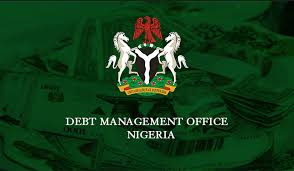The Debt Management Office (DMO) on Monday offered the December 2022 Federal Government Savings Bonds for subscription by the investing public.
A circular issued by the Office indicated that the offer was in two tranches of issuances, namely 2-year and 3-year savings bonds, with interest rates of 12.25% and 13.25%, respectively. This implies that the December offer’s interest rates slightly decreased from the November’s 12.492% and 13.492% rates for the 2-year and 3-year Savings Bonds respectively.
The DMO informed the investing public that the opening date for subscription was December 5th, 2022 and that the closing date would be December 7th, 2022.
Also, the circular further stated that the settlement date is December 14th, 2022, and coupon payment dates will be March 14, June 14, September 14, December 14
In addition, the debt management agency stated that the unit of sale was from N1,000 per unit subject to a minimum subscription of N5,000 and in multiples of N1,000 thereafter, subject to a maximum subscription of N50,000,000.
The Office disclosed that the bond qualified as securities in which trustees can invest under the Trustee Investment Act, qualified as Government securities within the meaning of Company Income Tax Act, (“CITA”) and Personal Income Tax Act (“PITA”), for tax exemption for Pension Funds, amongst other investor assurances.
In addition, it stated that each of the bonds was listed on the Nigerian Stock Exchange and also qualifies as a liquid asset for liquidity ratio
calculation for banks.
On its security, the DMO assured potential investors that the bond was backed by the full faith and credit of the Federal Government of Nigeria and charged upon the general assets of Nigeria.
Analysts believe that the slide in interest rates for the December offer may be due to an increase in demand for fixed-income securities especially those that are risk-free such as the FGN bonds.
However, the investment experts noted that the decrease in the December offer was not reflective of the recent Monetary Policy Rate (MPR) hike by the Central Bank of Nigeria (CBN) to 16.5% in a bid to frontally tame the surging inflation rate syndrome, which peaked at about 21% in October 2022.
Available investment market data showed that following the MPR rate hike, savings bond rates had also been rising to reflect the changes in the benchmark rate.
The CBN had in its last monetary policy communiqué partly linked the unimpressive performance of the market’s All Share Index (ASI) in October to its findings that investors were taking advantage of higher yields in the fixed income market when compared to other investment outlets.






